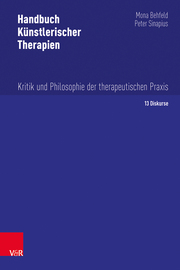Detailansicht
Der Majoristische Streit (1552-1570)
Controversia et Confessio Band 003, Controversia et Confessio 3
ISBN/EAN: 9783525560167
Umbreit-Nr.: 6047439
Sprache:
Deutsch
Umfang: 614 S., 17 Fotos
Format in cm: 3.1 x 24.8 x 17.4
Einband:
gebundenes Buch
Erschienen am 10.12.2014
Auflage: 1/2014
- Zusatztext
- Are good works necessary for salvation, or, on the contrary, even detrimental to salvation? How important is deliberate ethical action for the Christian life? What should Christians do to avoid the danger that the message of justification by grace alone might lead to moral indifference? Over such questions the so-called Majoristic Controversy evolved (1552-1570), which caused some unanticipated confrontations on the field of scholarly disputes among the followers of Luther and Melanchthon in the second half of the sixteenth century. An echo of this dispute can be heard in the fourth article of the Formula of Concord. In volume 3 of the edition 'Controversia et Confessio' readers find the most important texts produced during that controversy, by authors including Georg Major, Nikolaus von Amsdorf, Matthias Flacius, Stephan Agricola, and others.
- Kurztext
- Streit um den Stellenwert ethischen Handelns im Leben eines Christen
- Leseprobe
- Are good works necessary for salvation, or, on the contrary, even detrimental to salvation? How important is deliberate ethical action for the Christian life? What should Christians do to avoid the danger that the message of justification by grace alone might lead to moral indifference? Over such questions the so-called Majoristic Controversy evolved (1552-1570), which caused some unanticipated confrontations on the field of scholarly disputes among the followers of Luther and Melanchthon in the second half of the sixteenth century. An echo of this dispute can be heard in the fourth article of the Formula of Concord. In volume 3 of the edition 'Controversia et Confessio' readers find the most important texts produced during that controversy, by authors including Georg Major, Nikolaus von Amsdorf, Matthias Flacius, Stephan Agricola, and others.>
